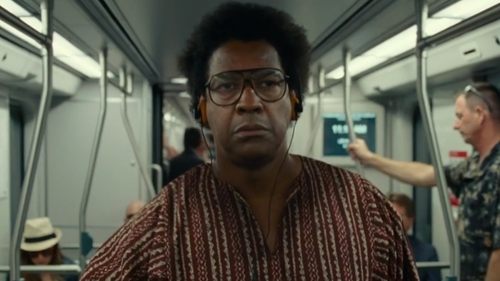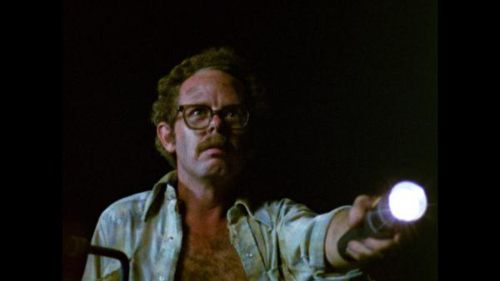Austin Film Fest Review: THE SEVEN-UPS Is American Poliziotteschi
The Seven-Ups ('73) is the only movie Philip D'Antoni - producer of both Bullitt ('68) and The French Connection ('71) - ever directed, and that's a crying shame. There's a genuine energy and affection for both the structures and people of New York City constantly present in his sole feature, signaling that D'Antoni could've easily had a long, distinguished career helming crime procedurals that delved into grey police department morality. Every shot of The Seven-Ups is frigid and distant, as we watch Buddy (Roy Scheider) - a driven leader of the titular detective unit - delve deeper into the soulful corruption of his Old World neighborhood. Were this helmed by Umberto Lenzi or Fernando de Leo, the film would feel right at home in the Roma Poliziotteschi canon that dissected Italy's ethical decay from street level.
George Pelecanos (HBO's The Deuce) stated that he picked D'Antoni's picture to show at the Austin Film Festival - where he and David Simon also premiered the finale of their 42nd Street opus' initial season - in order to highlight the types of grimy Big Apple productions they were trying to pull from when concocting the visual schematic of their latest hour-long dramatic serial. One look at The Seven-Ups' opening sequence - which operates almost on a pure cinema plane, as Buddy and his team bust a counterfeit bills buy at a Manhattan antique shop - makes it readily apparent how The Deuce drew inspiration from genre works that played in Times Square's all-night movie houses. The location work by D'Antoni and his team is amazing, placing us on those city blocks and in those unmarked squad cars, allowing us to bump up against these hard-nosed detectives and smell the sweat of their suspects as they're questioned.
Yet beyond these dilapidated station offices and Italian funeral homes (in which bad men take their nefarious meetings) are the lumpy actors who lend The Seven-Ups an even greater sense of authenticity. Scheider is essentially playing a variation on The French Connection's Detective Russo (who was also named Buddy), only he's no longer learning lessons from Popeye Doyle, but getting up close and personal with the mugs who're impersonating cops and plotting a series a mob kidnappings around the Five Boroughs. Any repetition or similarities between the two performances are instantly forgiven, due to the fact that Scheider is just so goddamn charismatic - that leathery visage, broken nose, and sinewy frame sliding into a turtleneck as if the thread had been invented for the man himself.
Surrounding Buddy are a collection of proto-Wire deep cover cops, with Jerry Leon's Mingo essentially delivering a 70s prototype for Bunk Moreland, muttering "let's go get a taste" to the rest of the team following a hard day's work. On the flip side of the law is Buddy's best snitch, Vito (Tony Lo Bianco); an old neighborhood chum who still runs numbers with made guys while Russo decided to slip a badge into his coat pocket. The relationship between Buddy and Vito is the heart of the film, as their brief exchanges fully sketch two men who care for each other because of the "old days", while still recognizing that they operate by slightly different re-workings of the same honor code. Buddy's still got some scumbag in him (as he'll rough up a hooligan, post-haste), while Vito claims to only be indulging in criminal elements thanks to a sick wife and kids he needs to support. A crossroads led the friends to split, but neither was ever going to exit their childhood stomping grounds for good.
The real highlight of The Seven-Ups is a near thirty-minute set piece (that almost comprises a full act, as Pelecanos pointed out during the Q&A), where we follow a botched kidnapping of one of Buddy's team (Ken Kercheval's Ansel), that leads to the film's second car wash heist, and then a high speed chase that is arguably superior to William Friedkin's earliest claim to big screen fame. Buddy is in hot pursuit of two goons (nightmare-faced Richard Lynch and stunt driver extraordinaire Bill Hickman, in his final role), who weave through the city and then dump onto the highway, as D'Antoni's picture eschews the actual geography of New York's main concrete veins (going from the GW Bridge to the Taconic State Parkway to Jersey's Palisades Interstate) in favor of multi-enviroment, adrenaline-juiced thrill ride where we genuinely fear for the safety of all involved (just look at how terrified Lynch is in the passenger seat). Buddy's hunt ends in one of the better moments of twisted steel in cinematic history (that was designed to pay tribute to the tragic death of Jayne Mansfield); a moment of destruction so abrupt and shocking it made the entire theater gasp before breaking out into applause.
In the end, The Seven-Ups still comes back to two men, as Buddy and Vito stand in stark contrast to one another, especially once a cop's blood is spilled during these mafia ransom shenanigans. The ending of D'Antoni's movie isn't as crushingly bleak as Friedkin's, but is still wholly unsettling once the moral consequences of both men's actions begin to set in. Perhaps this is the other reason why Pelecanos loves the picture so, as neither is a hero or villain, but merely masculine archetypes, attempting to survive in a dangerous universe where their core values were handed down from an Old World community that's still tight knit, but also antiquated. The Seven-Ups a truly great crime picture, and an example of the type of work that defined the 70s New Hollywood as an arena where such ethical ambiguities could be explored through pop entertainment.



